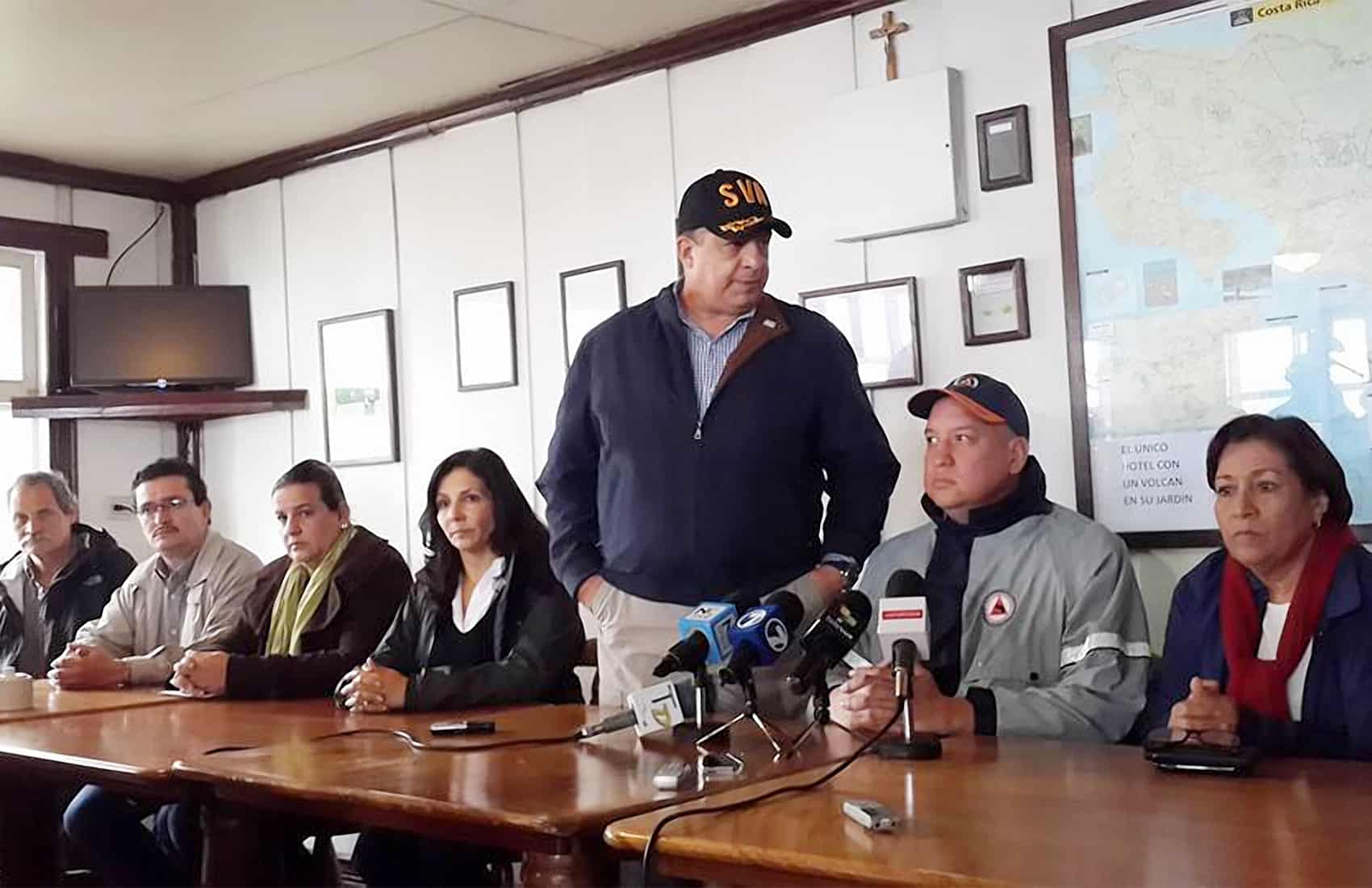Costa Rica’s Agriculture and Livestock Minister Luis Felipe Arauz confirmed Thursday morning that crops of carrots, cabbage, onions, cauliflower and potatoes grown north of the province of Cartago “have not been severely affected by the Turrialba Volcano’s activity.”
Arauz is part of a group led by President Luis Guillermo Solís that early Thursday visited several communities affected by the volcano’s gases, ash and rock. Officials assessed local access roads and the condition of crops and livestock.
Geologists and volcanologists from the National Seismological Network (RSN) continue to permanently monitor the volcano’s crater. Volcanologist Raúl Mora on Thursday said that Turrialba’s seismic activity has decreased slightly, and is less intense despite the continued expulsion of volcanic material.
A preventive Yellow Alert remains in effect for local communities, and public access remains closed for farms inside a one-kilometer security perimeter around the crater.
National Emergency Commission (CNE) officials said it is still safe to visit most of the communities north of Cartago, and access is only blocked inside the security perimeter. The Turrialba Volcano is located about 60 kilometers northeast of the Costa Rican capital.
CNE President Iván Brenes said the agency is evaluating a downgrade of the alert level to Green in some communities.
RSN staff is measuring gas emissions to evaluate the possible effects of acid rain in the surrounding areas. Officials from the Agriculture and Livestock Ministry have advised farm owners to spray animals and crops with calcium oxide to minimize the effects of acidity in the air.
The ministry’s latest report indicates that 180 hectares have been affected on some level, but the ministry’s director of extension services, Felipe Arguedas, said there currently is no cause for concern about long-term consequences for human health.
At a press conference Thursday, President Solís asked residents to remain calm, and to emphasize the point, he munched on a piece of fresh, locally produced broccoli. He also extended an invitation to travelers to visit local tourist destinations that are outside the security perimeter.
Solís did express concern about the deteriorated conditions of a 25-km road that connects the volcano with the community of Pacayas, which emergency officials believe would be the best evacuation route in case of an emergency.
Repairs of the road were included in a ₡400 million ($740,000) maintenance contract signed by the National Roadway Council, but only ₡290 million ($536,000) has been spent. “Yet the road shows no signs of progress,” Public Works and Transport Minister Carlos Segnini said. The minister said he would order an investigation of the project.
Also on Thursday, Education Minister Sonia Marta Mora reported that classes had resumed at nine public schools located northeast of Cartago. The ministry last week suspended classes in 19 schools as a preventive measure.






